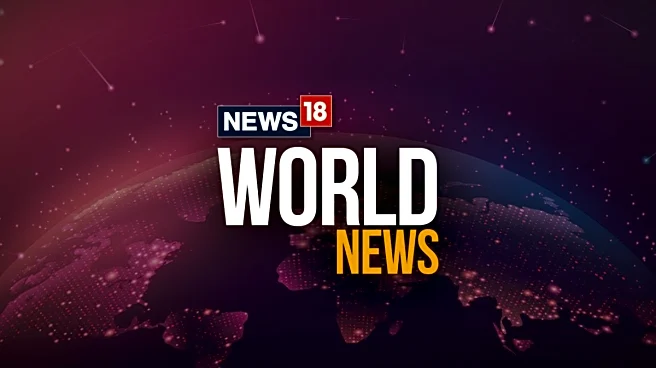Belem, Nov 4 (AP) For 30 years, world leaders and diplomats have gathered at United Nations negotiating sessions to try to curb climate change, but Earth’s temperature continues to rise and extreme weather
worsens.
So this month, they’re hoping for fewer promises and more action.
Past pledges from nearly 200 nations have fallen far short and new plans submitted this year barely speed up pollution-fighting efforts, experts say. And if the numbers aren’t sobering enough for world leaders when they kick off the action Thursday, there’s the setting: Belem, a relatively poor city on the edge of a weakened Amazon.
Unlike past climate negotiations — and especially the one 10 years ago that forged the landmark Paris climate agreement — this annual UN conference isn’t primarily aimed at producing a grand deal or statement over its two weeks. Organisers and analysts frame this Conference of Parties — known less formally as COP30 — as the “implementation COP.” “This is really going to be much more about what are we doing on the ground,” said former UN climate chief Christiana Figueres, who helped shepherd the 2015 Paris agreement aimed at limiting warming.
Figueres and many of more than three dozen experts interviewed by The Associated Press said negotiators have already pinned down the goal.
What’s needed now is more money and political will for countries to put decades of words and promises into action and policy to reduce heat-trapping gases and stop deforestation. Only that will put the brakes on global warming as it careens toward a level the world has agreed is too dangerous, they say.
Adapting to a warmer world and saving forests ————————————————– In Belem, diplomats, activists, scientists and business leaders will discuss new national climate-fighting plans, the need to save trees that absorb carbon pollution, how communities can adapt to warming and how to financially help developing nations hit hardest by climate change.
Host Brazil will preside and set the agenda. For the talks to be a success, world leaders need to beef up efforts and money for adapting to climate change and fund billion-dollar efforts to prevent deforestation and land degradation, said Suely Vaz, who used to run Brazil’s environment agency.
Those leaders arrive Thursday for a two-day pre-meeting summit to discuss ratcheting up the fight against climate change.
“Holding COP in the Amazon itself creates a new level of accountability. You can’t talk about climate solutions while standing on the land that’s absorbing the planet’s carbon and ignore the people who protect it,” said Eriel Tchekwie Deranger, a member of the Athabasca Chipewyan First Nation in Alberta, Canada, and executive director of the nonprofit Indigenous Climate Action.
Promising to cut more pollution or focusing on fulfilling pledges? ——————————————————————– There’s already a divide on the nature of this meeting. Brazil is stressing implementation of past plans as well as what’s in new emissions-cutting plans submitted this year. But smaller island nations, such as Palau, and scientists are saying that’s not enough. It dooms Earth to 3 degrees Celsius (5.4 degrees Fahrenheit) of warming since pre-industrial times, they said.
Palau and other island nations want negotiators to tell countries to be more ambitious in their new carbon pollution-cutting plans.
Implementing “mediocrity,” said Natural Resources Defence Council adaptation chief Adelle Thomas, “is not creating a future for vulnerable nations.” But if nations do what they’ve already promised in past climate-fighting plans, it could trim an entire degree Celsius — 1.8 degrees Fahrenheit — from projected warming, said Ani Dasgupta, chief executive of World Resources Institute.
Scientists agreed with the estimate. Dasgupta said negotiators have too long focused on big commitments instead of outcomes in the real economy, which he said is “the messier thing” that doesn’t get headlines.
“What we now need to do is deliver against what we have signed on to,” said scientist Johan Rockstrom, director of the Potsdam Institute for Climate Research in Germany.
Path to disaster or optimism? ——————————- “The challenge today is not whether we will phase out fossil fuels. The challenge today is will we be too late?” Rockstrom said. “We are heading towards catastrophic 3 degrees.” Figueres, the former UN climate chief, agreed it looks bad. But she co-founded an a organisation called Global Optimism and said she’s sure the world can do this.
“My optimism is not naive. I know what we’re up against,” she said. “But my optimism is about determination. It’s about we’re up against a really, really, really challenging threat here. And we don’t give up.” (AP) GRS GRS


/images/ppid_a911dc6a-image-177072706674199318.webp)

/images/ppid_a911dc6a-image-177072703039960280.webp)









